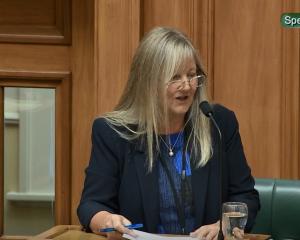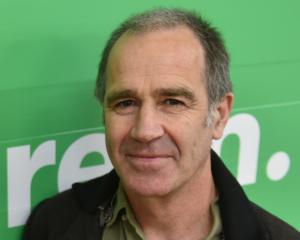Attorney-General Chris Finlayson has described her as his favourite politician -- "utterly principled and a very decent woman".
"The Foreshore and Seabed Act is Helen Clark's legacy to New Zealand; its repeal is Tariana Turia's, and I have to say that Mrs Turia is by far the greater politician.
"In this place, folks say it takes a lot of courage to stand up to one's enemies. Well it takes a lot more courage to stand up to one's friends. That is what Mrs Turia did 10 years ago, and she won."
Helen Clark recognised the advantages of bringing such leaders into Parliament and Mrs Turia began parliamentary life as a list MP, then won Te Tai Hauauru, before parting with Labour in 2004 and founding the Maori Party.
She retired this election but is still co-leader of the Maori Party, for the time being, and a minister until she surrenders her warrant next week.
She describes co-leader Te Ururoa Flavell as "incredibly trustworthy, and he's careful ... He will never ever do anything that is going to have a huge impact on our people."
The election 10 days ago whittled down Maori Party representation to just one electorate seat, Mr Flavell's, and one list place, well down from its five seats in 2008.
"Six years ago, we had been in Opposition and we gained a seat," Mrs Turia said. "And this time, we get $2.9 billion spent to make a difference for Maori families and we lose."
She believes there is some resistance in Maoridom to accepting a positive message.
"Three years ago, I sent out a sheet detailing everything the Maori Party had achieved and some people who contacted us said, 'We got your "skite sheet".' It blew us away. There is this attitude amongst our people that they really don't like you talking about what you've done.
"The other message they may not have liked has been the message I have driven through Whanau Ora -- that we should not depend on the state to do things for us, that we should be a much more independent people and relying on one another."
Having worked with National for six years, Mrs Turia developed her favourites among its MPs.
"I've really liked Bill English. I have admired his capacity to understand and to think about things. I think he has quite a strong social justice attitude about things.
"Chester Borrows is another one. Quite strong social justice leanings. And I've always liked Nikki Kaye. She's got a mind of her own."
But it hasn't been all beer and skittles. Mrs Turia said the most difficult time was when National announced that GST would rise from 12.5 per cent to 15 per cent part way through its first term in Government and that it would be subject to a confidence and supply vote.
"I felt resentful, very resentful that we hadn't been told at the initial thing of our relationship that they were going to do that."
In the end the Maori Party had to either vote for it or end the whole confidence and supply agreement -- upon which repeal of the Foreshore and Seabed Act was based -- and they voted for it.
Mrs Turia is renowned for her calmness and control, however, something she learned from her Uncle Frosty. "I was lucky I had a very good uncle who taught us when we were quite young that if you lose your temper ... you lose perspective and you lose the argument."
Her patience was tested by Hone Harawira -- now Mana leader -- when he was part of the Maori Party and began criticising the relationship with National. Mrs Turia said he had always wanted to go with National when given the chance.
"The issue for Hone is that Hone is not a team player. He has to be the leader ...
"Friends of his said could we give him more responsibility. There was no way National was going to give us another ministerial [post]. But in the end, if I'm being really honest, he wasn't disciplined, he wasn't reliable."
Asked about the decision last week by the controversial New Plymouth District Council to create a Maori ward, she applauded the move. "Communities need to understand why these things need to happen. And if you can't build a community of inclusion where people feel they are part and parcel [and] ... engaged, of course you're going to get division.
"When I think about all our resources at a local level, if I think about Maori resources, that's where all our resources are. That's where our people need to be having a say. They need to be engaged, they need to be proactive, if they want things to happen that are important.
"That's why I support the New Plymouth thing. The more we engage with one another, the more we will understand each other and the more we will be able to do things that are collectively good for all of us."
- By Audrey Young of the New Zealand Herald












